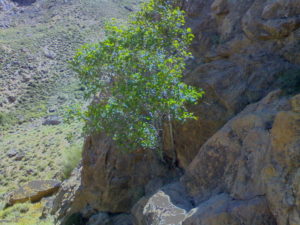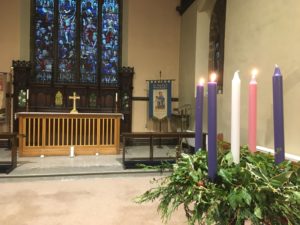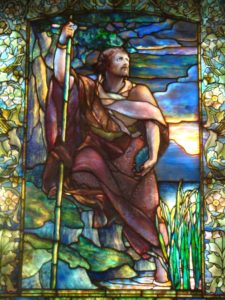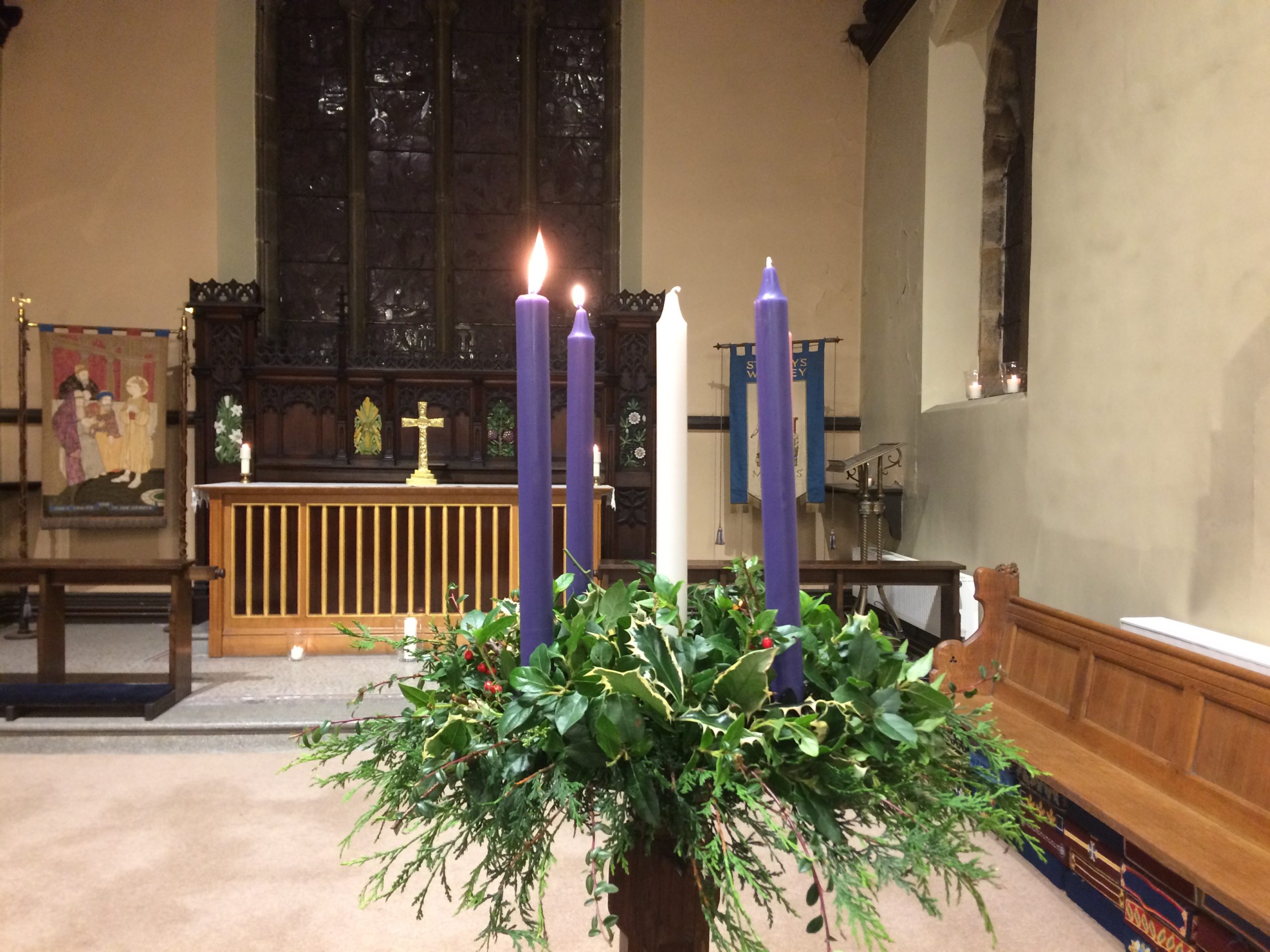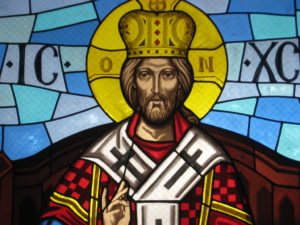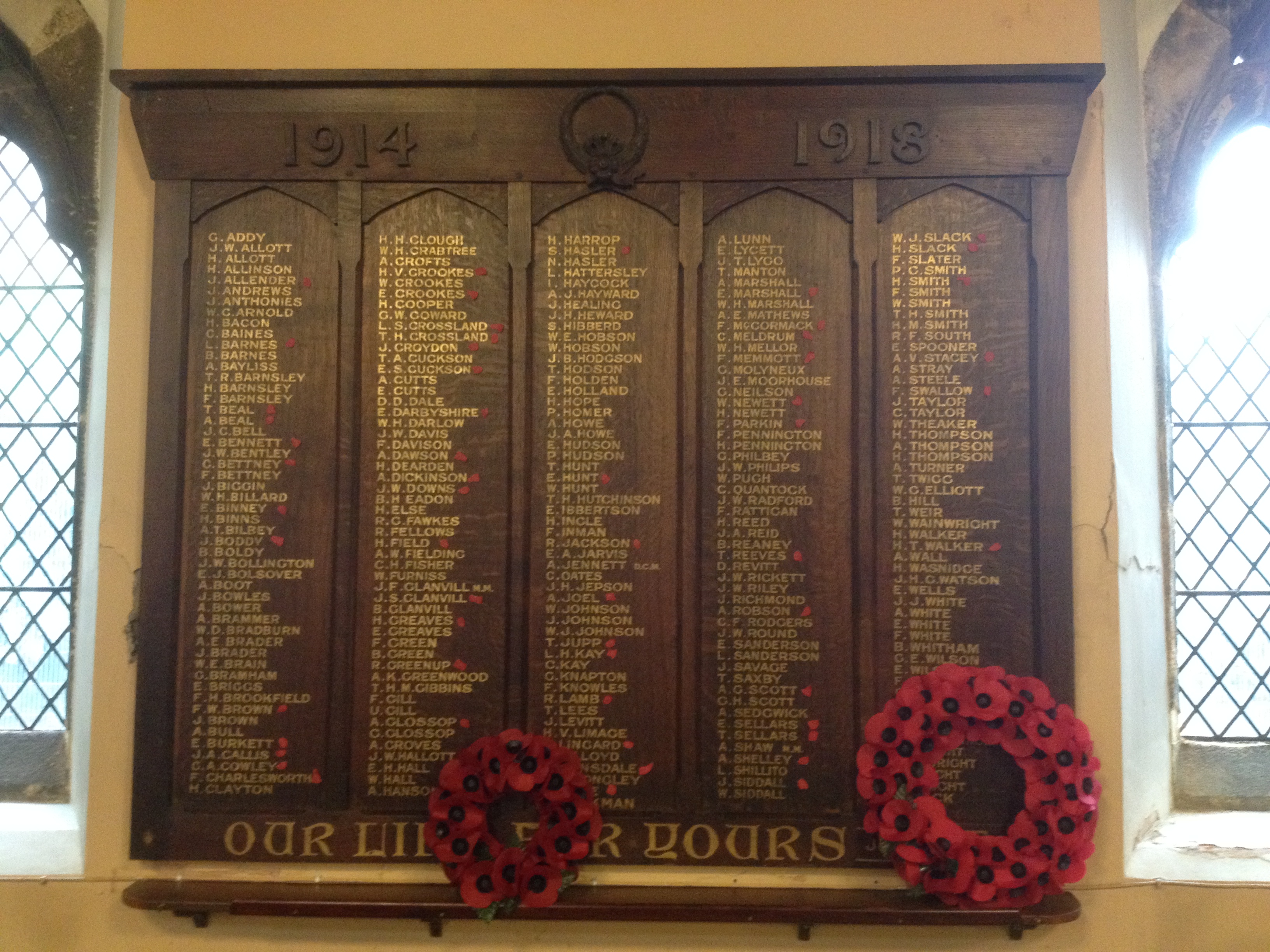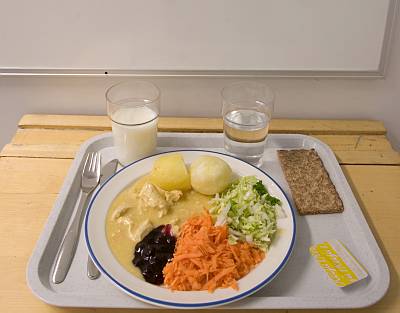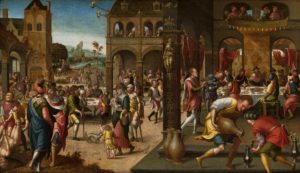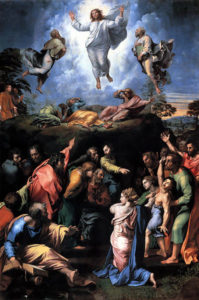
The Readings
2 Corinthians 4.3-6
And even if our gospel is veiled, it is veiled to those who are perishing. In their case the god of this world has blinded the minds of the unbelievers, to keep them from seeing the light of the gospel of the glory of Christ, who is the image of God. For we do not proclaim ourselves; we proclaim Jesus Christ as Lord and ourselves as your slaves for Jesus’ sake. For it is the God who said, ‘Let light shine out of darkness’, who has shone in our hearts to give the light of the knowledge of the glory of God in the face of Jesus Christ.
Mark 9.2-9
Six days later, Jesus took with him Peter and James and John, and led them up a high mountain apart, by themselves. And he was transfigured before them, and his clothes became dazzling white, such as no one on earth could bleach them. And there appeared to them Elijah with Moses, who were talking with Jesus. Then Peter said to Jesus, ‘Rabbi, it is good for us to be here; let us make three dwellings, one for you, one for Moses, and one for Elijah.’ He did not know what to say, for they were terrified. Then a cloud overshadowed them, and from the cloud there came a voice, ‘This is my Son, the Beloved; listen to him!’ Suddenly when they looked around, they saw no one with them any more, but only Jesus.
As they were coming down the mountain, he ordered them to tell no one about what they had seen, until after the Son of Man had risen from the dead.
The Sermon
By the Revd Canon Alan Billings.
Many years ago when I was a curate, I conducted a wedding. After the young couple had exchanged their vows, the verger was supposed to switch off the microphone that stood in front of them. He forgot, and as we prepared to sing the second hymn, we heard the bridegroom talking to his new wife. He called her, ‘My little fish finger’.
My little fish finger. He called her this, of course, not because she was golden brown and covered in breadcrumbs, but as a term of affection. Some of us may have been doing something similar today, which happens to be St Valentine’s day.
It is sometimes quite difficult to find the words to express some of our deepest feelings or to describe some of our most profound experiences. The Bible is full of descriptions of people encountering God – and as often as not they seem very strange when they get put into words.
Take Moses. On one occasion he went up Mount Horeb. Here he met God. He had some overwhelming experience of the presence of God. How could it be described? It was as if a bush was on fire, yet was not consumed. Transfigured, we could say. Genesis goes on: “Then … God called to him out of the bush, ‘Moses, Moses!’ And he said, ‘Here I am.’ Then he said, ‘Do not come near; put off your shoes from your feet, for the place on which you are standing is holy ground.’ And he said, ‘I am the God of your father, the God of Abraham, the God of Isaac, and the God of Jacob.’ And Moses hid his face, for he was afraid to look at God.”
God cannot be seen or even imagined – his presence is mysteriously felt. For Moses it was as if you were in front of a burning bush. God is utterly other, utterly holy. Moses is fearful. Yet God also draws near; he speaks to Moses.
And God identifies himself - as the God of Abraham, the God of Isaac and the God of Jacob. I have always read that as a way of saying that God exists beyond time and through all times; he has no beginning or end, and he keeps faith down the generations with his people.
But I came across a commentary on it by rabbis: they have a second explanation for those words – the God of Abraham, the God of Isaac and the God of Jacob – which I rather like. They say that this is a reminder that each person’s experience of the one God is different. Abraham’s experience, Isaac’s experience, Judaism’s experience, your experience, my experience, may be different – but it is the same God.
Then we have the gospel for today. We jump forward 1200 years. Jesus and his three disciples on another mountain. And the disciples have an experience which is equally strange and mysterious.
They see their teacher and friend, Jesus, transfigured in front of them, rather as the burning bush was transfigured for Moses. Again, a sense that this is holy ground, a little fearfulness. Yet God draws near and speaks to them out of the cloud that overshadows them, ‘This is my Son, the beloved; listen to him!’
This incident – the Transfiguration of Jesus on the mountain – comes at a critical moment for the disciples. They have recognised Jesus as the one sent by God. This experience nudges them towards a hard and bitter truth: that the way of the messiah is inescapably the way of suffering. That will put the faith they have in Jesus to the most severe test. A test they will at first fail before they can draw again on this experience and understand Jesus for who he is.
Transfigurations. Strange mysterious encounters with God. A sense of God’s utter holiness, his difference from us, his distance from us – for he is God and we are mere mortals, sinful mortals at that. A sense that we are on holy ground. Yet a sense too of God’s nearness to us, his approachability, his wanting to speak to us. All these emotions mixed up together. No wonder when they try to describe it all, it comes out in such odd ways.
I suspect we all have experiences of God which are equally strange and hard to put into words. People often have them when they step aside from life’s busyness – to come to church or say their prayers, or go on retreat.
But they come out of the blue, unbidden. And they can happen anywhere – in the countryside, in the house, walking down the street, as well as in church. At any time of day. They may come when we are doing something overtly religious – like saying our prayers or receiving the sacrament or singing hymns. They are just as likely to come, though, when we are doing something very mundane – like washing up or sweeping the yard. Cooped up at home in lockdown.
They are a funny mix of sensing God’s presence, sensing his holiness, his difference from us; a little fearful; yet also being aware of his nearness, his calling our name; a feeling of being safe in his presence. Sometimes, when this happens, the world around us lights up or takes on a transfigured appearance in some way – sometimes.
We couldn’t live in this state of heightened awareness all the time, of course; but we do need these moments when we glimpse God, when we encounter God the living and the true – what the NT calls seeing the glory of God. They are often only moments, sometimes only fleeting moments. But we need them. They refresh our spirits, they rekindle our hopes, they give us the strength and courage we need to go back to the mundane world and do battle again.
Alan Billings
The Prayers
Prepared by Joe.
The bidding for our prayers this morning is “Lord, have mercy” and the response is “Christ, have mercy.”
As we look towards the start of the season of Lent, we pray for God’s Church throughout the world. We for our Archbishops Justin and Stephen, for Bishop Pete and Bishop Sophie, all here who lead us in worship and prayer, and all those whose time and talents are given to St Mary’s and our sister Churches.
Lord, have mercy.
Christ, have mercy.
We are called to proclaim Jesus Christ as Lord and recognise that we are slaves for Jesus. During the time of reflection ahead of us, we pray that we may bring the light of the Gospel in to clearer focus in our own lives, as well as helping others perhaps see it for the first time.
Lord, have mercy.
Christ, have mercy.
We pray for all those in authority, and those who have influence in the world, that their power and voices be used compassionately for the good of all. We pray that the international community can come together to resolve the ongoing issues with our changing climate, especially the effects it has on the poor.
Lord, have mercy.
Christ, have mercy.
We pray for our community here in Walkley, and for the city of Sheffield, and for our neighbours and friends. we continue to deal with Covid 19, help all of us to work together for the good of all. We thank you for the skills and knowledge that scientists and medical staff have been able to use to develop treatments and vaccinations for this illness, and for all those involved in distributing vaccinations.
Lord, have mercy.
Christ, have mercy.
We pray for the aged and infirm, and those sick in mind, body or spirit, those that need your grace and blessing. We pray that God’s power and spirit will strengthen them and bring them the healing and peace that belong to Christ’s kingdom. We pray for all those who are feeling isolated and lonely at this time.
Lord, have mercy.
Christ, have mercy.
We pray for those close to death, and those accompanying them on this final part of their Earthly journey. We pray for those who have died, recently and in the past, and those who mourn. We pray for those who have died without the comfort of their family around them, that they were comforted by the presence of the Lord.
Lord, have mercy.
Christ, have mercy.
Finally, Lord, we silently bring before you those special to us, and also those issues and concerns that we have in our own lives.
Lord, have mercy.
Christ, have mercy.
Rejoicing in the communion of Mary and of all the Saints, let us commend ourselves, and one another, and all our life, to God. Merciful Father: accept these prayers for the sake of your Son,
our Saviour, Jesus Christ.
Amen.


